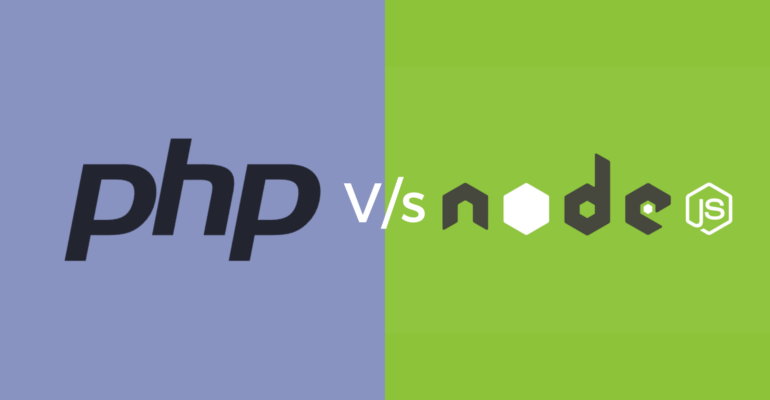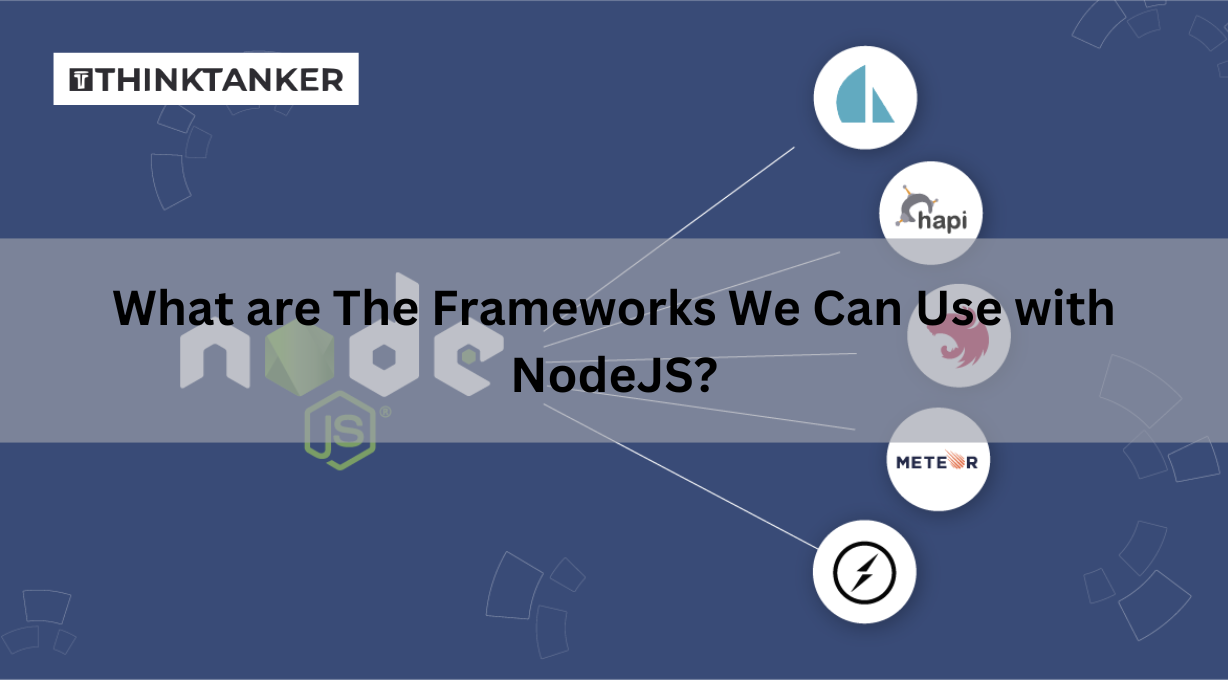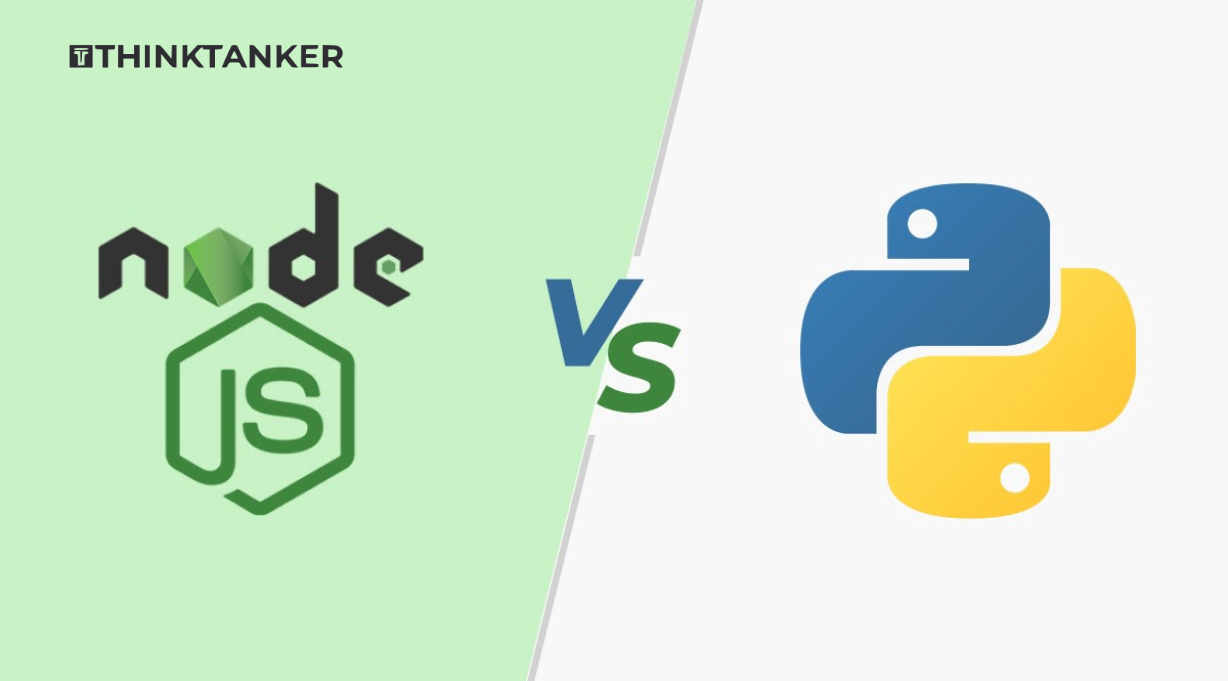PHP Vs. Node.Js: The Battle of Server-Side Giants is On in 2020

PHP Vs. Node.Js: The Battle of Server-Side Giants is On in 2020
The server-side environments have never seen such rivalry. JavaScript has become a resource for several new frameworks. Node.Js works on the Google V8 JavaScript engine so; the famous PHP framework got its greatest rival ever.
Cut to the chase, Node.Js has been an enterprise-grade server-side environment. But, PHP has been evolving too. The latest 7.4 version has many features to offer for developers. These environments are equally popular among companies.
Table Of Contents:
- PHP Vs. Node.Js: The Rivals
- Pros & Cons: Node.Js Development
- Pros & Cons: PHP development
- PHP Vs. Node.Js: The Final Bell
With Node.Js 13 offering greater flexibility and excellent features, the battle has become more rigorous. So, it becomes difficult to choose between them. So, here we are going to unravel some factors that will help you differentiate between them.
PHP Vs. Node.Js: The Rivals
When you are comparing two technologies, you need to know each of them. Let’s start our comparison by knowing the rivals of PHP Vs. Node.Js
What is PHP?
PHP was introduced way back in 1995. But, over the years, it has transformed from a scripting language to a server-side environment. It was created to rectify the shortcomings of C language. It sort of transitioned from C language substitute to a full-fledged environment. Even the development of web apps has seen PHP applications.
Web-apps are quite popular among businesses as they help your websites extend to mobile devices. Companies can have dedicated PHP experts or a website development company to develop such web-apps. PHP allows developers to embed HTML in such web-apps. It has incredible features that make dynamic web pages fun to develop. It helps developers use databases like MySQL. It is an open-source programming language, so you get a community full of experts.
What is Node.Js?
Node.Js is a JavaScript runtime environment. It uses Chrome’s V8 JavaScript engine. The engine enables companies to develop enterprise-grade apps and web-apps. It helps to integrate technologies like robotics, IoT(Intenet of Things), automation, and others.
Node.Js is a server-side JavaScript environment. What Node.js can do to your apps is.
● It can help you generate dynamic pages.
● It can create, read, and write effective command files.
● It can help collect data from apps through forms.
● It enables data modifications for the apps and web-apps.
Node.Js is the best choice when it comes to backend development. MEAN(MongoDB Express.Js Angular.Js Node.Js) stack development uses Node.Js to handle the backend. It is the reason why Node.Js is quite popular among developers.
Pros & Cons: Node.Js Development
Pros:
Backend Bliss:
With Node.Js, you get the power of a full-stack JavaScript development. It provides wonderful backend support for developers. It helps firms with:
● Higher developer productivity
● Better app performance.
● Easy knowledge sharing
● Exquisite free tools for development
● Code reusability at its best.
One of the most essential elements in a Node.Js is its module. You can hire Node.Js developers to leverage the modules where developers can reuse the same code in front and back. All they need is to wrap it in a Node.Js module.
Google Engine:
Developers can compile JavaScript functions with Chrome’s V8 engine. It was designed for the chrome browser based on C++. It helps the conversion of JavaScript functions to machine codes. It is extremely fast. It is also updated every year. There is no match to its power and performance.
Non-Blocking I/O:
The Conventional approach was to use synchronous processing. Here, a user request has to wait for its turn. If the preceding request is under process, it blocks the I/O(Input/Output) thread. Node.Js uses an asynchronous non-blocking I/O. It means there is no need to wait for a user request to be processed. Instead, it can determine which request is essential and process it concurrently.
Microservices:
Node. Js supports the use of microservices. It boosts the microservice architecture for scalable apps. Microservices are a set of individual services that operate independently. But, provide a response to user interaction from the system as a suite.
Cons:
Computing Bottlenecks:
Node.Js is single-threaded. So, whenever a request with a higher computation need comes, it employs all the CPU power. Thus, the response to other requests is slow. It means that users get a delayed response. It can harm the user experience of the app.
Code Maintenance:
It is pretty much hard to maintain the code when it hides beneath the callbacks. Node.Js uses callbacks to execute asynchronous requests. During this process, a phenomenon occurs known as “Callback Hell.” Here, callbacks get nested behind other callbacks. So, developers find it hard to reach to code too deep.
Pros & Cons: PHP Development:
Pros:
Coding Paradise:
It is ideal for e-commerce websites. It is compatible with platforms like WordPress, Drupal, Joomla, Squarespace, and others. It is effortless to understand. The syntax is simple and helps with Content Management Systems development.
Simplified Maintenance:
PHP emphasizes the MVC(Model-View-Controller) structure that helps developers divide the app into three components. These three components are Model, View, and Controller. Thus, the maintenance code with these components makes it more accessible.
Coding Length:
It allows clean code generation. PHP frameworks provide higher code generating features. So, developers can create more clean source codes. These codes are easy tom maintain, and you don’t need to add lengthy codes for your web -apps.
Cons:
Framework Quality:
There are several different PHP frameworks. While it is beneficial to developers, it has some drawbacks. Many PHP frameworks do not have extensive support for the developers. Some are also in initial stages, which is why there is not much of a community or repositories for developers.
Modifications:
Developers can leverage PHP development for customizations. But, there is an apparent lack of modification tools for its core. You can customize your web-apps, but you can’t modify your basic code. So, it makes it difficult to induce newer features and even better versions of web-apps.
PHP And Node.Js Has Been Implemented By Top-Brands And Tech Giants Since Years;
Now, we know the rivals and their arsenal. So, it’s time to decide who the winner is? But, before concluding, let’s understand how they are implemented for development purposes. Technology giants and fortune 500 companies have been choosing Node.Js. Companies like Netflix, eBay, PayPal, and even Nasa put their faith in Node.Js.
PHP has its following giants like Facebook, Flickr, Yahoo, and WordPress using PHP. When it comes to applications, they have different takers. Firms with the need for real-time interactive apps prefer a Node.js development company while PHP development is being used for CMS development and web portals.
PHP v/s Node.js: The Final Bell!
We pretty much covered the topic of PHP vs. Node.Js. But, in the end, it’s your need that counts. Before choosing any one of them, analyze your requirements. Once you do that, you will have a clear picture of which server-side environment you should choose.
And still, if there is any doubt on which one to choose for your business?





